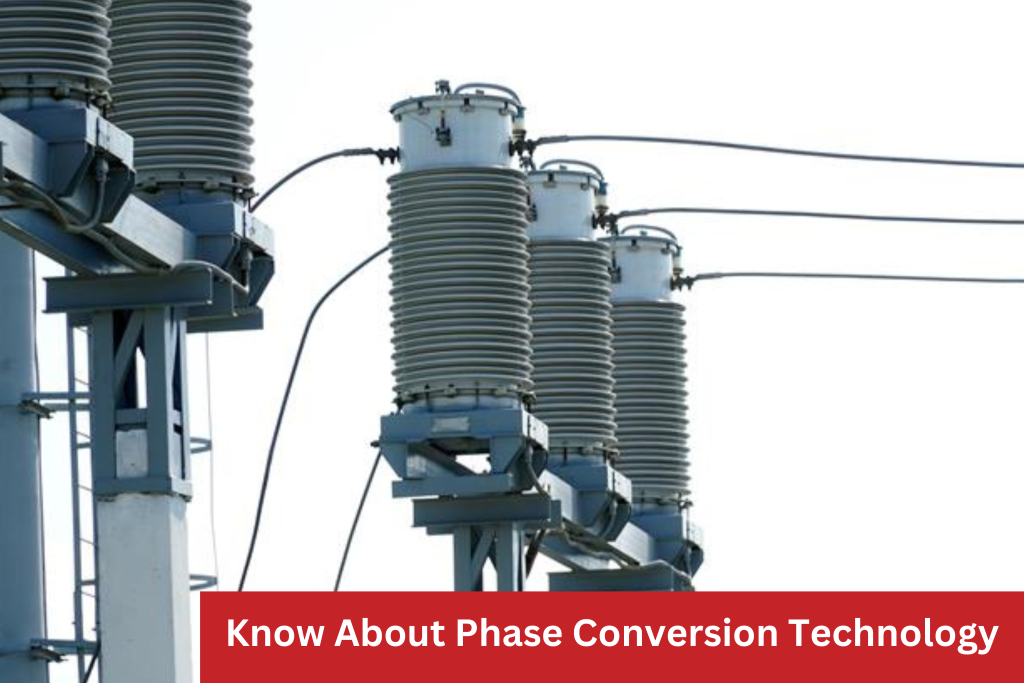All You Need to Know About Phase Conversion Technology
In today’s industrial and commercial landscapes, the need for reliable power systems is paramount. Phase conversion technology has established itself as an essential tool for businesses and industries that need three-phase power but are connected to the grid through single-phase power supply. This blog post discusses phase conversion technology in detail, including the different types of conversion such as digital phase converters, static phase converters, 3 phase rotary converters, and single phase converters.

What Is Phase Conversion Technology?
The term phase conversion technology refers to a method which transforms single phase electrical power to three phase power. Three phase power is required for running heavy duty industrial equipment and is more efficient and has a smoother operation than single phase power. From a business perspective, phase converters allow businesses to power three phase machinery without incurring the cost of utility upgrades.
Although single phase power supplies are widespread in residential and rural areas, many industrial machines need three phase power. They fill the gap, allowing businesses to run without a hiccup.
Types of Phase Converters
There are three primary types of phase converters, each suited to specific applications:
Digital Phase Converter:
Digital phase converters are electronic systems which are used to single phase power into three phase power. These converters are very precise in such a way that they ensure that the voltage and frequency are consistent for sensitive equipment. Key benefits include:
- 1. High efficiency and low energy consumption.
- 2. Smooth operation for CNC machines and other precision tools.
Static Phase Converter:
For starting three phase motors on single phase systems, static phase converters give the first boost of power. They are inexpensive and easy to set up, and are thus widely used for light duty purposes. They are not, however, suitable for continuous three phase operation and are most appropriately employed in applications where motors begin with no load.
3 Phase Rotary Converter:
Rotary phase converters produce real three phase power from motors and capacitors. They are strong and universal and are thus recommended for use when several machines need to be powered at once. Advantages include:
- 1. Consistent power delivery for heavy-duty machinery.
- 2. Longevity and reliability in industrial settings.
Single Phase Converter:
The three phase to single phase converters are not as popular as the single phase to three phase converters but are used for converting three phase power to single phase power. These are used in situations where single phase equipment is required in a three phase power system.
How to Choose the Right Phase Converter for Your Needs
Selecting the right phase converter depends on several factors:
- Power Requirements: Determine how much power your equipment requires.
- Type of Equipment: Some equipment, such as CNC machines, might need digital phase converters, while a rotary phase converter may be suitable for a heavy-duty equipment.
- Operational Efficiency: Energy efficiency and long-term operational costs should be considered.
It can help to consult with a trusted supplier or expert to make sure you choose the best option for your particular application.
List Of Top Transformer’s With Warranty :-
- Three Phase Transformers
- Dry Type Transformers
- General Purpose Transformers
- Buck Boost Transformers
- Industrial Control Transformers
- Drive Isolation Transformers
- K Factor Rated Transformers
- Auto Transformers
- Harmonic Mitigating Transformers
- Medium Voltage Transformers
- Lighting Transformers
- Low Voltage Transformers
- Single Phase Transformers
Key Benefits of Using Phase Converters
Phase converters offer numerous advantages, including:
- Cost Savings: Do not buy expensive upgrades to three-phase utility service.
- Versatility: Power a variety of industrial and commercial equipment.
- Efficiency: Improve the performance and lifespan of your machinery.
Applications of Phase Conversion Technology
Phase converters are used across various industries, including:
- Manufacturing and Machine Shops: For powering lathes, mills, and grinders.
- HVAC Systems: To run compressors and pumps.
- Agriculture: For irrigation systems and grain elevators.
- Woodworking and CNC Machinery: For precision cutting and shaping tools.
Installation and Maintenance Tips for Phase Converters
Proper installation and regular maintenance are crucial for optimal performance. Here are some tips:
- Installation: It should be ensured that the phase converter is installed by a qualified technician. The compatibility with your existing power supply and equipment should be verified.
- Maintenance: It is recommended that you clean and inspect the converter regularly to prevent dust from building up on the converter. Watch for any signs of the converter being worn out or not running right.
- Troubleshooting: It is recommended that you address voltage imbalances and overheating right away so as not to damage your equipment.
Why Phase Conversion Technology Matters in Modern Industries
As industries expand and develop, the need for adaptable and reliable power systems rises. Phase conversion technology allows companies to run sophisticated equipment with minimal alterations to the infrastructure, which makes it a convenient and economical choice for many.
Conclusion
Phase conversion technology is a game changer for industries and businesses that need three phase power where single phase is available. When you know the different types of converters such as digital phase converters, static phase converters, 3 phase rotary converters and single phase converters you will be able to make a choice that meets your operational needs.
Explore our wide range of phase conversion solutions at Bruce Electric and find the perfect converter to power your business efficiently.